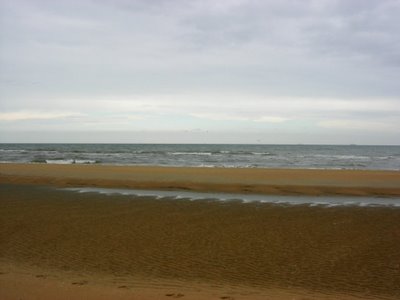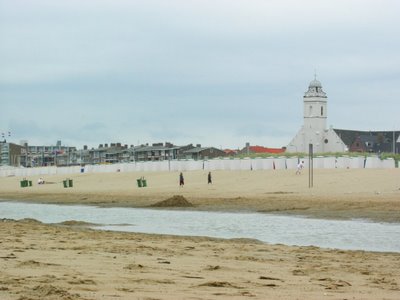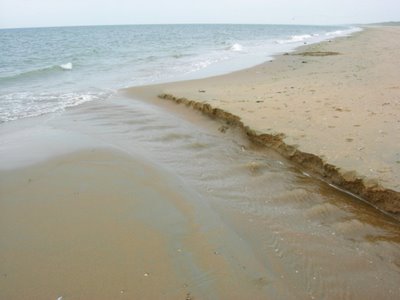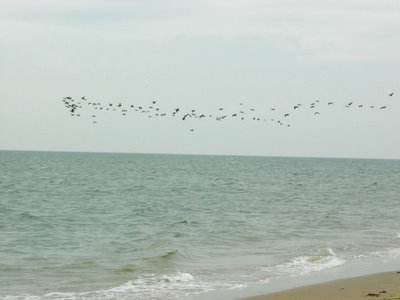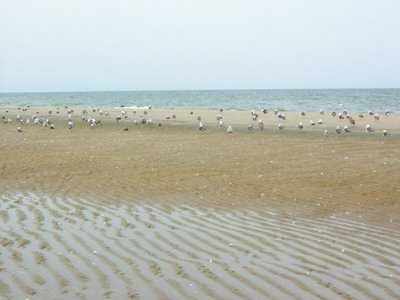Some days you just wake up and want to do something…out of the ordinary.
Today was such a day.
Not exactly a warm welcome as I went downstairs. Brother greeted me by saying the cat had peed again, which is another way of saying ‘clean it up’. Had a quick brunch and decided I needed to get out of the house. Grabbed the bike, a magazine, two bars of chocolate and a bottle of water and just left, unsure where I’d end up.
I cycled and cycled, and it started to drizzle. I didn’t want to turn back, despite the fact that clothes were getting soaked. Going back meant I had to face ‘all that at home’, and I didn’t want to. And knowing Dutch weather, I gathered the rain would stop soon enough. And it did. For a while.
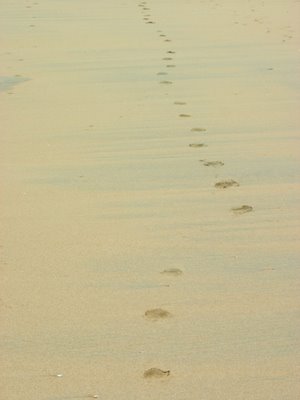
(Footsteps: how far I've come)
I headed into the dunes, in the general direction of north along the coast. I just cycled and cycled, with music in my ears and thoroughly felt that liberating feeling—or perhaps rush—I get from cycling. Soon my mind clear, and so did the sky.
I wasn’t sure where the path would lead, but I just followed it, taking me up and down little sand hills awash with shrubs and other undergrowth. Eventually the path came to a dead end, and there lying before me was the beach. A deserted one.
I parked my bike and stood for a few moments to take in the view. To one side was Scehveningen, the usually crowded and overpriced resort with a hideous pier. To the other side was emptiness. No surprise in which direction I went.
I started walking, again unsure I where I would end up. Originally I wanted to come to the beach and find a quiet place to sit down and read…but I just kept on walking, and walking, and walking. Occasionally a couple, or someone equally alone as I was, would pass me by. Some travelling the same direction, some the opposite direction. But for those brief moments our paths did cross and meet…or at least our eyes and smiles did.
A little embarrassed as I hadn’t realised that the further I walked, the deeper I tread into naturalist territory. Mostly old(er) people, wrinkled and grey. Not much to look at. Not that I did, or wanted to. I just kept on walking.
At one point I was tired of the shoes on my feet. I wanted to touch nature, and let it touch me. It felt even more liberating to be walking barefoot on the sand. I continued walking, the wind blowing and blowing, the air sometimes filled with the sounds and flapping of seagulls and other birds. Some rested in large droves, some flew over the horizon in a neat formation, braving the strong winds and drizzles. I kept on walking, sand tickling my feet, clinging onto my toes and the crevices between them. Broken seashells glittered in the weak daylight and crunched beneath my feet. I enjoyed that sound, that crunching of empty shells. It made me feel…powerful, like I was in control. Crushing and crunching.
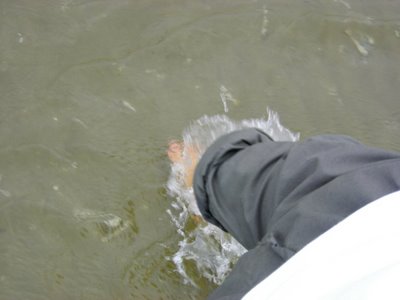
(Wadding through water)
The sea was grey today, and waves brushed against the shore in a low, ever-continuous rasp. Dense clouds loomed above, some patches darker than others. In the distance I could see streaks of rain as they fell to the earth, and that soon would come my way. I kept on walking, walking and walking. In the distance, far, far away I saw some buildings. Still unsure where I was going, and unsure what those buildings were, I headed north, and continued walking.
Sometimes thoughts and worries arose in my mind, but I shook them off, again and again, just as I shook off the sand grains which cling onto my feet, again and again. A lot of the time I felt so small in the backdrop of an endless and empty beach and an even more endless and empty sea. I was there, to clear my mind, to clear my thoughts, to get away. And get away I did.
Left, right, left, right. Memories from Myanmar came back to me as I walked, recalling and trying to relive that meditative momentum. Left, right, left, right. The wind was strong, and at times I was tempted to just turn around and head back, but something kept me going. I came across many pools of water that had been separated by the sea. I wadded through them, like a child through puddles of rain. I splashed and kicked, got myself wet and excited. The water parted beneath me, white foam collected around my knees, and behind me trailed ripples of waves as if a ship had sailed across the water.
Sometimes my toes hurt, cut by the sharp shrapnel of seashells. But I kept on going. I knew I could make it. My eyes were set on those buildings, and my mind set on reaching them. I kept on walking. And eventually did arrive…to my surprise at Katwijk aan Zee! Now, that’s around 10km from where I started. And I had no idea I could do that within 2 hours! Just shows where determination and concentration could take you. I sat down for a few moments, ate my chocolate bars, remembering to put the wrappers into my bag and take them home with me. When you are on an empty beach and there is nothing else but sand and rubbish, you’ll know what I mean. I sat and watched children play, huddled together over a pool, perhaps attempting to decipher what miraculous creature they have uncovered. Old couples walked hand in hand. Young couples walked arm in arm. Other couples stood and hugged, braving the wind that threatened to tear them apart. Some were as alone as I was. Which was comforting.
And then it started to rain again. I thought if I just sat a little longer, the rain would stop. But it didn’t, but got bigger and bigger. People scrambled for cover and fled the beach. I too stood up and patted my sand-soaked trousers. I couldn’t exactly flee. All I could do was face the rain and start the long journey back.

It wasn’t the first time
I walked in the rain. But a thought did occur to me: why does it always (seem to) rain whenever I go on a long quest? A test perhaps? Of my will, perseverance, strength, my body? I knew I had it in me to pass the test. And eventually I would.
It rained and rained. At first my spirits were dampened as my trousers and tank-top became soaked. I could only bemoan the skies and fate…but then I realised nobody is to blame. Rain just came, and rain will go. And it eventually did go. That’s the nature of things. Just how it is. I accepted it. And the rain became my friend.
On the way back, most of the journey was in the rain, accompanied by strong gale force winds. Once or twice I passed people who were equally soaked. We gave each other glances and smiles, a sign that we silently understood each other’s predicaments. Those were magical moments of meetings of minds. [...]
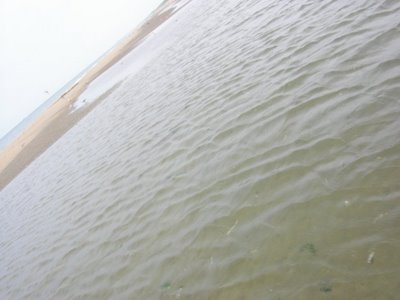
At one point I really had to pee. I looked around, and there was nobody around, safe for the seagulls that roamed the skies above. I did it there and then, on the beach. As I did, I realised why it was a bad idea to do so in the wind. And I don’t mean the risk of
€75 fine for ‘wild-peeing’ (wildplassen) like that 3 year old boy received earlier in the week.
I smiled and laughed like I’ve not done in a long, long time. Something about the whole situation was hilarious, and I couldn’t stop laughing. I spread my arms wide to embrace the wind, the rain, the whole world. I stuck my tongue out to taste the rain, feel the wildness of nature soak me and touch me.
I felt so free, so happy. Like a child again.



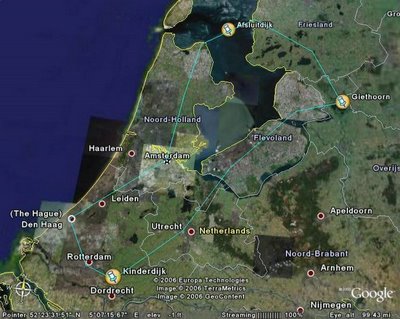

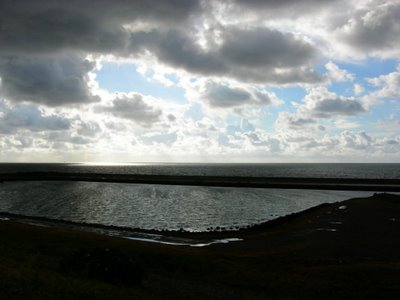
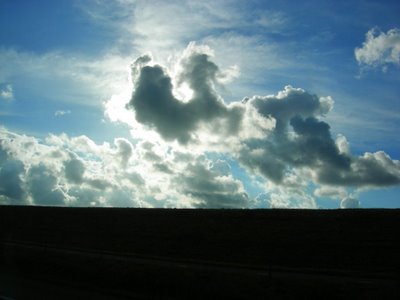

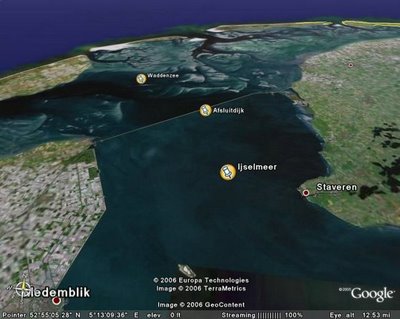
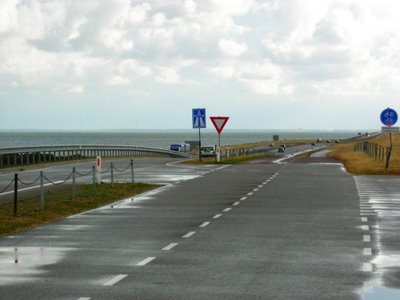
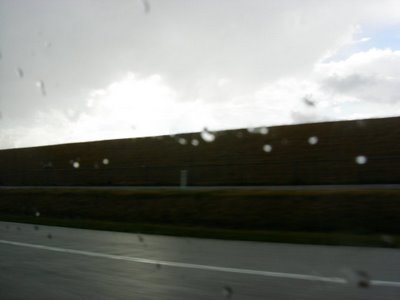
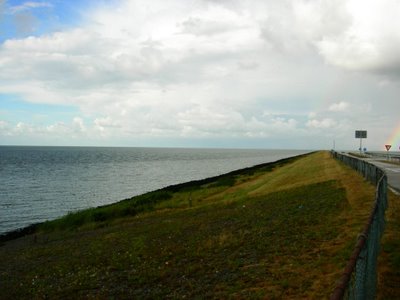
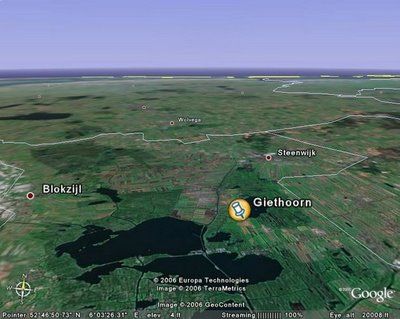
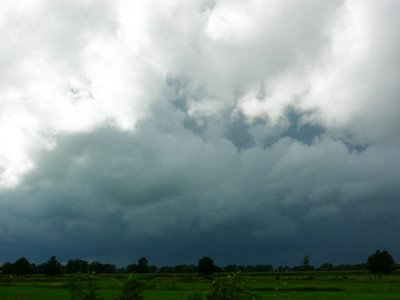
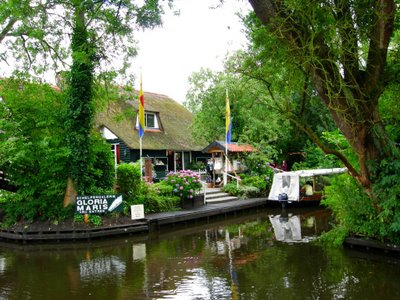
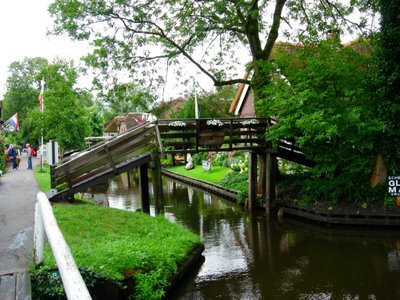
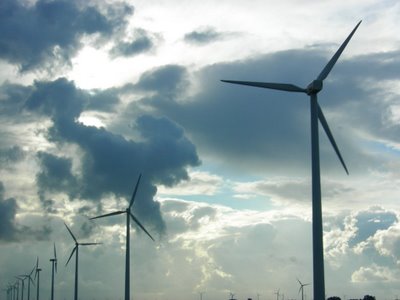
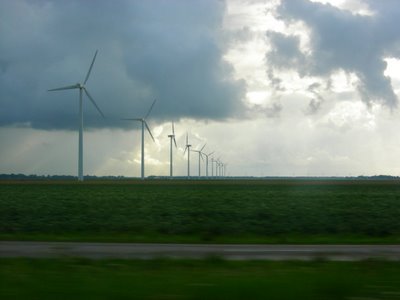
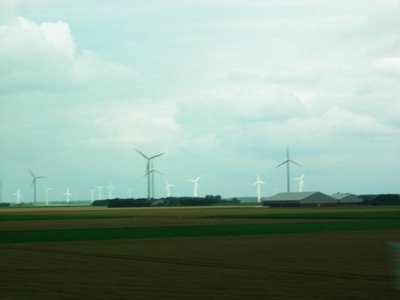
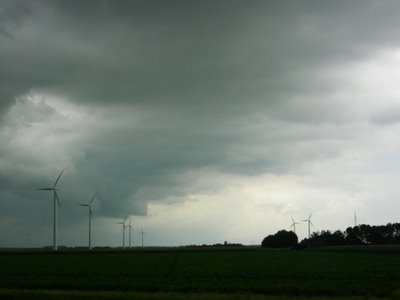
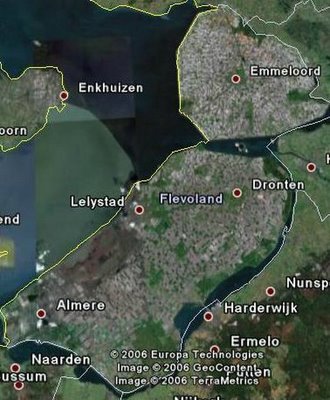
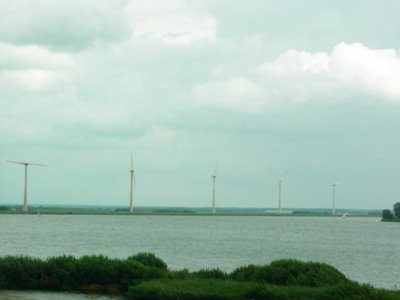 Crossing over from mainland Netherlands to Flevoland. Typical of the Flevoland landscape are countless wind-powered turbines.
Crossing over from mainland Netherlands to Flevoland. Typical of the Flevoland landscape are countless wind-powered turbines.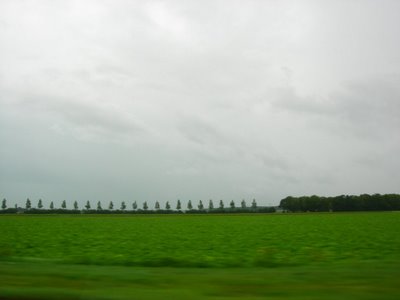
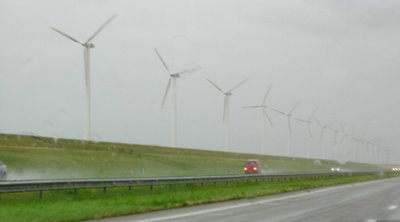
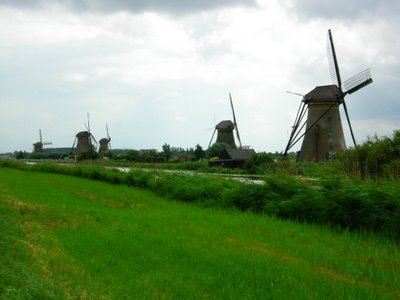
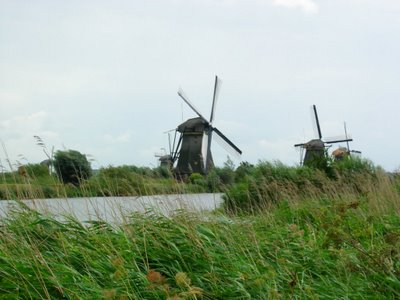
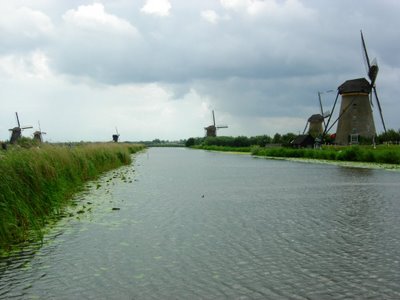
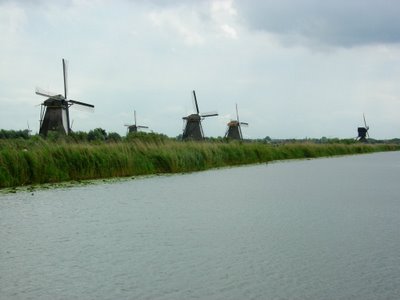
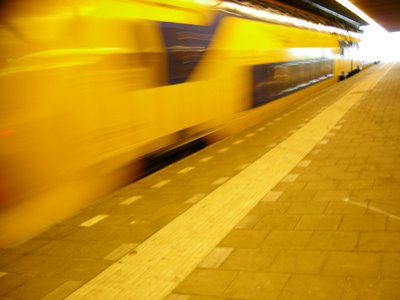
 (Footsteps: how far I've come)
(Footsteps: how far I've come) (Wadding through water)
(Wadding through water)


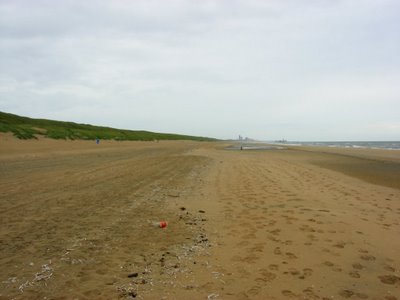 Along the way (notice the Coke bottle!!!)
Along the way (notice the Coke bottle!!!)